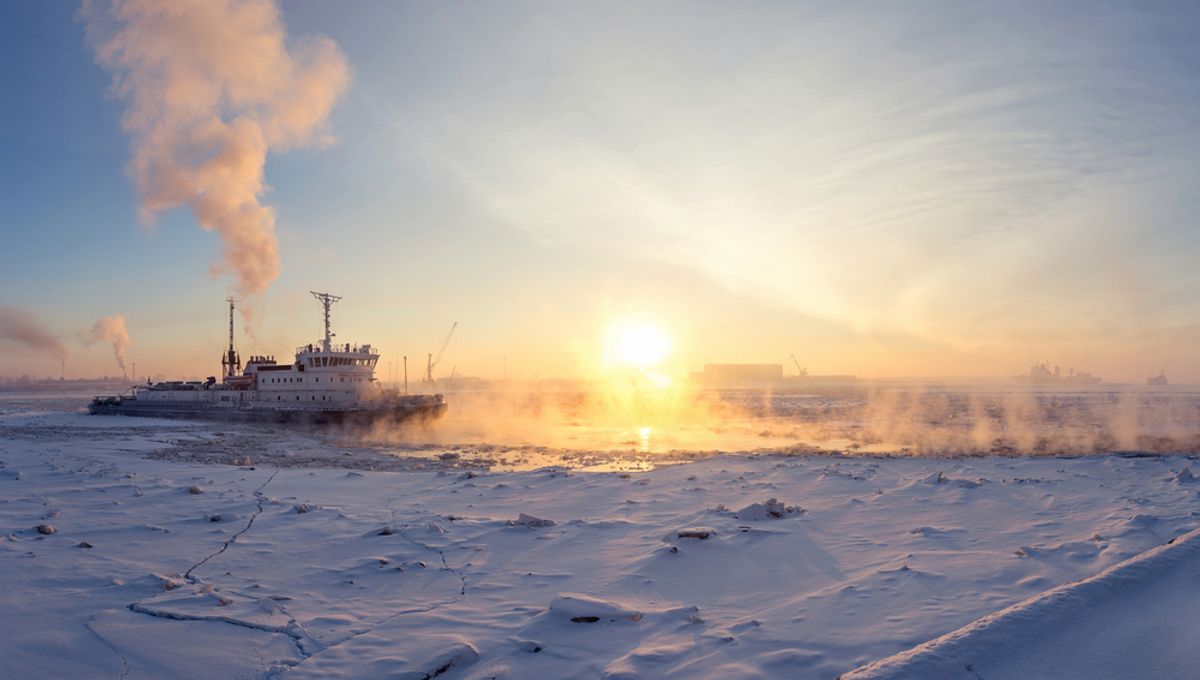
The icy waters of the Arctic Ocean have become increasingly more influenced by the comparatively balmy Atlantic waters through a process called “atlantification.” It’s one of the many ways in which the fragile Arctic is being disrupted by increasing global temperatures. In a new study, scientists add to our understanding of this phenomenon by pinpointing another force that’s modulating the Arctic Ocean’s unwanted make-over: a pressure and wind pattern called the Arctic Dipole.
The Arctic Ocean is formed of numerous water layers that remain in place thanks to the differences in salt concentration, which affect the buoyancy of the water.
The top layer is freshwater with a low salinity, held at near freezing point, which comes from the melting of sea ice and from Arctic rivers that release into the ocean. Beneath this top slice comes a layer of saltier and warmer water from the Atlantic. In between these two layers, you can find an intermediate layer known as the Arctic halocline where the warm, salty water mixes with the cold, fresh surface layer above. Once you get beyond the warm and salty Atlantic layer, there is another water mass of cold and slightly saltier water, known as Arctic deep water.
However, in recent decades, researchers have noticed that an influx of warmer Atlantic water to the Arctic is changing the makeup of this ocean stratification.
Driven by climate change, the Arctic Ocean is seeing sea ice reductions, weakening of the halocline, and reduction in the depth of the Atlantic warm waters. In sum, the Atlantic water is having an increasing influence on the Arctic Ocean.
Along with warming global temperatures, scientists at the University of Alaska Fairbanks argue that the so-called “atlantification” of the Arctic waters is also being dictated by the cycles of the Arctic Dipole.
The Arctic Dipole is a pressure pattern characterized by anticyclonic winds over North America and cyclonic winds over Eurasia, resulting in an inflow of water from the North Atlantic through the Barents Sea, as well as the Fram Strait between Greenland and Svalbard.
Scientists believe that the Arctic Dipole varies in a 15-year cycle, creating some periods where there’s a weaker northward flow of water from the Atlantic. Between 2007 and 2021, the researchers noted that the Arctic Dipole weakened inflows to the Arctic Ocean across the Fram Strait while strengthening inflows through the Barents Sea, northeast of northern Norway.
In turn, this actually helped to slow the trend of Arctic Ocean “atlantification” and sea ice loss since 2007. Now, however, this latest cycle is coming to a close, which the researchers indicate could up the gear on sea ice loss in the coming years.
“We are beyond the peak of the currently positive Arctic dipole regime, and at any moment it could switch back again. This could have significant climatological repercussions, including a potentially faster pace of sea-ice loss across the entire Arctic and sub-Arctic climate systems,” Professor Igor Polyakov, study author, of the University of Alaska Fairbanks’ College of Natural Science and Mathematics, said in a statement.
The study is published in the journal Science.
Source Link: "Atlantification": How Warm Atlantic Waters Are Being Diverted In The Arctic